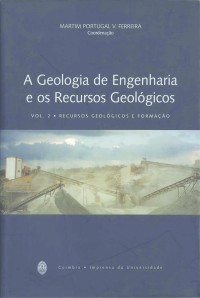Please use this identifier to cite or link to this item:
https://hdl.handle.net/10316.2/39238| DC Field | Value | Language |
|---|---|---|
| dc.contributor.author | Andrade, A. Soares de | |
| dc.contributor.author | Marques, Luís | |
| dc.date.accessioned | 2016-08-02T10:08:32Z | |
| dc.date.accessioned | 2020-09-20T10:09:58Z | - |
| dc.date.available | 2016-08-02T10:08:32Z | |
| dc.date.available | 2020-09-20T10:09:58Z | - |
| dc.date.issued | 2003 | - |
| dc.identifier.isbn | 972-8704-15-1 | |
| dc.identifier.isbn | 978-989-26-0322-3 (PDF) | |
| dc.identifier.uri | https://hdl.handle.net/10316.2/39238 | - |
| dc.description.abstract | The understanding o f the World at the end o f 18th Century was mainly concerned with Natural Philosophy. Since then, specialization related to the In d u stria l Revolution, has been developed; sp e c ia liz a tio n has also had consequences, such as the fragmentary knowledge and the building o f boundaries between several subject knowledge areas. The revolution carried out through Plate Tectonics Theory grouped several geological domains in a “new Geology”, known from the literature as Geosciences or Earth Sciences. The intention of the achievement o f a “unity” perspective, as well as the sociological and technological context in which this process took place, has had influence in the science teaching and learning process. In addition, the definition o f the main aims o f science teaching nowadays and the designing o f the corresponding strategies should be carried out within a science-technology-society framework. Three topics, supposed to be enjoyable for the students, were selected in this study i.e. geological hazards, geological resources and territorial management. Guidelines for the corresponding teaching and learning strategies in the three geological learning environments (classroom, laboratory or/and even the field), were discussed; they should be adapted by the teachers to their particular educational contexts. | eng |
| dc.description.abstract | Nos finais do século XVIII, o estudo do mundo identificava-se ainda, em larga medida, corn a Filosofía Natural. A partir de então, a especialização arrancaria em força, acompanhando o desenvolvimento da Revolução Industrial, e com ela a fragmentação do saber e a compartimentação das d isc iplina s cientific a s. A revolucionária Teoria da Tectónica de placas viria ajudar ao reagrupamento das numerosas disciplinas geológicas numa “nova Geologia” que muitos preferem designar por Geociências ou Ciências da Terra. Esta preocupação com a procura de unidade, tal como o contexto tecnológico e social em que ela ocorre, tem fortes implicações ao nível do ensino - aprendizagem. De facto, o estabelecimento das grandes finalidades do ensino das ciências, bem como a forma como é feita a abordagem dos respectivos conteúdos, devem ser enquadrados pela relação Ciência - Tecnologia - Sociedade como alternativa a um tratamento descontextualizado daqueles. Susceptíveis de análise ao nível da sala de aula, foram seleccionados três tópicos geológicos com reconhecida capacidade apelativa para os alunos: Riscos Geológicos, Recursos Geológicos, Ordenamento do Território. Em cada um destes casos, discutem-se princípios orientadores de propostas de trabalho susceptíveis de serem adaptadas pelos professores na sala de aula, no laboratório ou no campo. | por |
| dc.language.iso | por | - |
| dc.publisher | Imprensa da Universidade de Coimbra | por |
| dc.relation.ispartof | http://hdl.handle.net/10316.2/2760 | por |
| dc.rights | open access | - |
| dc.title | Ciência, tecnologia e sociedade: o lugar da Geologia, o papel do professor | por |
| dc.title.alternative | Science, technology and society (STS): from Geology to Geology teaching | eng |
| dc.type | bookPart | por |
| uc.publication.collection | Investigação | por |
| uc.publication.firstPage | 437 | - |
| uc.publication.lastPage | 447 | - |
| uc.publication.location | Coimbra | por |
| dc.identifier.doi | 10.14195/978-989-26-0322-3_31 | - |
| uc.publication.section | Trabalhos de educação em Geologia | por |
| uc.publication.digCollection | PB | por |
| uc.publication.orderno | 31 | - |
| uc.publication.area | Ciências da Engenharia e Tecnologias | por |
| uc.publication.bookTitle | A geologia de engenharia e os recursos geológicos. Vol. 2: Recursos geológicos e formação | - |
| uc.publication.manifest | https://dl.uc.pt/json/iiif/10316.2/39238/223307/manifest?manifest=/json/iiif/10316.2/39238/223307/manifest | - |
| uc.publication.thumbnail | https://dl.uc.pt/retrieve/11365924 | - |
| uc.publication.parentItemId | 52738 | - |
| uc.itemId | 72808 | - |
| item.fulltext | With Fulltext | - |
| item.grantfulltext | open | - |
| Appears in Collections: | A geologia de engenharia e os recursos geológicos. Vol. 2: Recursos geológicos e formação | |
Files in This Item:
| File | Description | Size | Format | |
|---|---|---|---|---|
| ciencia_tecnologia_e_sociedade.pdf | 8.35 MB | Adobe PDF |  |
Items in DSpace are protected by copyright, with all rights reserved, unless otherwise indicated.
